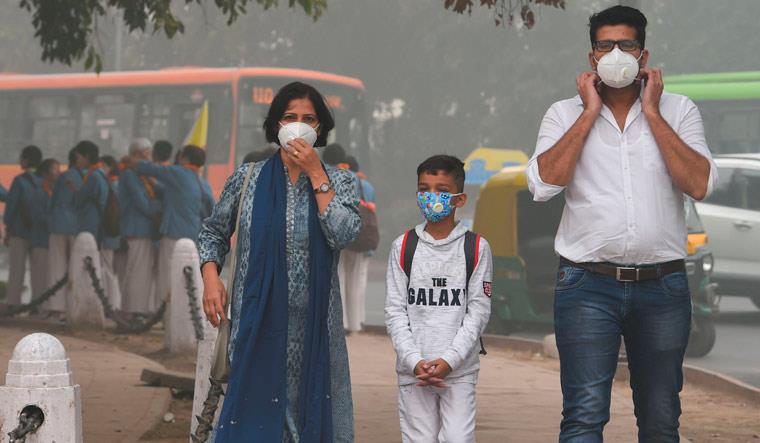
Delhi's Toxic Air Raises Cancer, Respiratory Alarm
Representational image | PTI
New Delhi- Delhi's deteriorating air quality has health experts worried over the far-reaching and long-term health consequences of sustained exposure to polluted air. From increased cancer risk to weakening the body's immunity, the impact of air pollution extends far beyond respiratory ailments, they said.
The State of Global Air 2025 report warns that India recorded over two million deaths linked to toxic air in 2023. With PM2.5 concentrations in South Asia among the highest worldwide, experts describe it as a deepening environmental and human crisis.
Environment experts and policy-makers are of the view that India's pollution stems from multiple sources, with residential solid-fuel burning contributing around 30 per cent of the ambient PM2.5, with vehicles, coal-fired power plants, industrial emissions, and agricultural residue burning adding to the load.
ADVERTISEMENTIn dense cities such as Delhi, traffic congestion and construction dust magnify exposure, they said.
“Delhi represents the sharp edge of India's air-pollution emergency,” said Dr Rakesh K Chawla, the head of the department of respiratory medicine, sleep and interventional pulmonology at Jaipur Golden Hospital in Rohini.
He pointed out that each winter, particulate-matter levels soar to nearly 10 times the WHO safe limit.“After Diwali and crop-residue burning, the city sits under a lid of stagnant cold air that traps toxins.”
“This isn't just a seasonal inconvenience; it's a continuous assault on lungs that weakens immunity, worsens asthma, and accelerates chronic lung disease. Clean air must be treated as a basic right, not a luxury dependent on weather or wind,” he said.
Dr Chawla added that short-term interventions have failed to deliver real relief.“From odd-even traffic schemes to cloud-seeding experiments, these are reactive, symbolic measures.”
What Delhi needs is sustained enforcement of emission norms, investment in electric public transport, and strict controls on construction and waste burning, he said, adding that without systemic change, every winter will replay the same public-health disaster.

Legal Disclaimer:
MENAFN provides the
information “as is” without warranty of any kind. We do not accept
any responsibility or liability for the accuracy, content, images,
videos, licenses, completeness, legality, or reliability of the information
contained in this article. If you have any complaints or copyright
issues related to this article, kindly contact the provider above.


















Comments
No comment